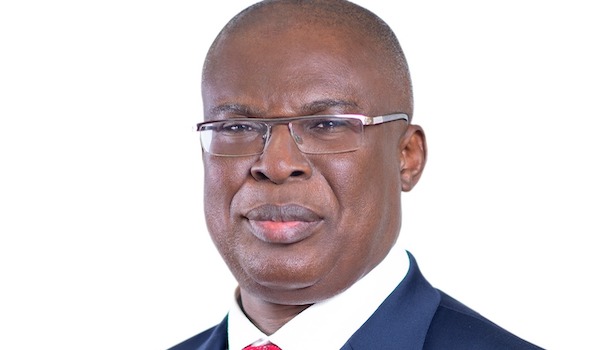News
Nigerian govt moves to compete in global oil market, inaugurates body to reduce cost of production

The Federal Government has inaugurated the Nigerian Upstream Cost Optimisation Programme (NUCOP) to drive down the cost of crude oil production in the country, Minister of State for Petroleum Resources, Timipre Sylva, has revealed.
Sylva, at the inauguration on Tuesday, February 9, in Abuja said that cost reduction of crude oil production would help Nigeria remain competitive in the global market.
“NUCOP is aimed at optimising our upstream operation expenses through process enhancement and industry collaboration.
“One of the top priority areas given to the Ministry of Petroleum Resources under the Next Level agenda of Mr President is the reduction of the crude oil extraction cost.
“At the Ministry of Petroleum Resources retreat held in 2019, we identified some initiatives to tackle the challenging high cost of crude oil extraction in Nigeria,’’ Sylva said.
He said that the major cost drivers identified as contributing to high crude oil production in Nigeria when compared with low production costs in other countries such as Iran and Saudi Arabia could be classified under five dimensions.
Sylva said that the five dimensions were capital expenditure items, operational cost, systemic cost factors, the cost associated with contracting procedures and policy-related elements.
He explained that further diagnostic elements included lack of proper project definition, weak collaboration and standardisation, capacity and capability issues, security-related issues, facility reliability and uptime limitations.
“In line with the commitment of President Muhammadu Buhari’s administration to address these issues, he recently inaugurated the Oil and Gas Excellence Centre in Lagos.
“We have also put in place an industry standing committee to monitor compliance with cost production and tariffs, the committee will design a template to collate unit technical and unit development cost of productions by operating companies and identify cost-efficient operators.
“They will institute a monitoring system with the Ministry of Petroleum Resource to track cost trends and track cost benchmark between Nigeria and other producing countries especially, those with production cost profile,’’ he said
Sylva added that the committee would design protocols for interface with operating companies to monitor their compliance to cost production directives.
He noted that the creation of industry cost-efficiency aimed at unlocking cost optimisation opportunities and supplying efficiency for inventory management, logistics, security, among others.
He noted that complying with all these efforts would help to drive a low cost of production in the country.
Sylva said that the average cost of a barrel of crude oil was currently below 30 dollars for the Joint Venture (JV) agreement and below 20 per barrel for the Production Sharing Contract (PSC).
Read also: Uptick in crude oil price raises hope for Nigerian govt’s revenue projection
“We need to do a heavy lifting not only to get to the optimal unit of cost but also to sustain it as part of our way of doing business.
“Today’s engagement with industry players is part of this administration’s effort to tackle this challenge, I expect robust discussions and realistic road mark to achieve cost optimisation objectives,’’ he said
In his remarks, the Group Managing Director, the Nigerian National Petroleum Corporation, Mele Kyari, said that the country must cut down the cost of crude oil production for economic growth and development.
Kyari said that with the ongoing energy transition, consumers and investors have various choices to make across the world.
“We cannot produce 50 dollar oil and survive in the global market; you can do that in 2007, 2008 and survive, but today, it is impossible to operate with such cost and be competitive,” he said.
He said that for Nigeria to achieve a reduction in cost, there was the need to have adequate security architecture, adding that a conducive business environment remained important.
`In order to for us to remain competitive, to deliver our national objective of ensuring growth in our economy, we need to reduce the crude oil production cost,’’ he said.
In September 2020, President Muhammadu Buhari had announced an increase in fuel pump prices for the umpteenth time, citing the need to bolster Africa’s biggest economy, which for years has been urged by multilateral lenders to remove costly fuel subsidies and change electricity tariffs, both of which held prices artificially low.
Nigeria’s economy contracted by 6.1% in the second quarter of 2020 due to the impact of the coronavirus pandemic and low oil prices.
Africa’s top oil exporter relies on crude sales for 90% of foreign exchange earnings.
Join the conversation
Support Ripples Nigeria, hold up solutions journalism
Balanced, fearless journalism driven by data comes at huge financial costs.
As a media platform, we hold leadership accountable and will not trade the right to press freedom and free speech for a piece of cake.
If you like what we do, and are ready to uphold solutions journalism, kindly donate to the Ripples Nigeria cause.
Your support would help to ensure that citizens and institutions continue to have free access to credible and reliable information for societal development.




















